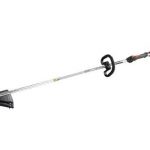Weeds are always a nuisance. Most people may think that the spring or fall may be the best time to eradicate them. That may be true. However, many lawn care experts also believe that you must deal with the problem in the winter months.
Weeds are an indication that your lawn is experiencing growing problems. For example, small hop clover, a common weed with a yellow flower, shows that the soil is dry and lacks an adequate amount of nitrogen. Annual bluegrass, a grass that clumps when it grows reveals wet soil, compaction, and excess nitrogen. Moreover, this weed grows aggressively during the winter and forms numerous seeds that sprout in the spring. Moss is the result of excess shade, poor drainage, and compacted soils.
Some weeds thrive in shaded areas, on slopes or in a wet depression. Grass cannot compete with them. The best method to deal with them is to consider options other than grass. This could include ornamental ground covers that flourish in shaded areas and slopes.
The best way to rid your lawn of weeds that sprout up in small numbers is to pull or dig them up. But you need to be certain to get the entire plant including the roots. In areas of your lawn where a number of weeds are growing, it may be best to use herbicides to manage them while you deal with the growing issues.
Weeds that appear in the winter months usually begin to germinate in September, grow slowly through January and February and go through rapid growth and flowering in March. If you wait until March or April to deal with them, they’ve grown too large and attempts to control them will mean costly and time consuming applications of herbicides. It is much easier to deal with the issue during the winter when they are smaller and much easier to control.
Lawn care experts suggest the use of four way herbicides that include 2,4-D, mecroprop, dicamba, and maybe carfentrazone for weeds on bermudagrass, zoysiagrass and tall fescue lawns. Herbicides with a lesser amount of these ingredients will work on centipedegrass and St. Augustine lawns. Still, it is suggested that you read and follow instructions on the label of the herbicide before you use it.
Weed Stop, Weed Out, and Weed-B-Gone for Southern lawns are over the counter products that will also do the job.

The roots of a Florida Betony look like the rattle of a rattlesnake.
(Courtesy: Andy Firk at flickr.com)
Herbicides with atrazine can be used in November and December for weeds on St. Augustine, zoysiagrass, centipedegrass, and dormant bermudabrass. Atrazine controls annual bluegrass and broadleaf weeds. However, don’t use atrazine on lawns over-seeded with annual or perennial ryegrass or other cool season grasses.
Wild garlic and wild onion are weeds that also appear in the fall and winter. They can be controlled with Image herbicides containing imazaquin. Spot treatment of the herbicide is advised for small infestations. However, don’t use this herbicide for weeds on cool season grasses including tall fescue and warm season lawns that have been over seeded with annual or perennial ryegrass.
Winter weeds to watch out for also include:
· Florida Betony. This weed goes dormant in the warmer season, but can be very invasive in winter. They feature a chain of tubers that look like rattles of rattlesnakes.
· Wild Garlic. Similar to an onion, wild garlic grows in small, grass-like clumps with long blades. They do not feature deep roots, but they can be a problem in the growth of plants around it.
· Burr Weed. Burr weed features thorns and a long stem with a spherical bulb on top.
· Hairy Vetch. This weed is often used to improve pasture and soil, but can be a cumbersome weed in winter if left to thrive.







